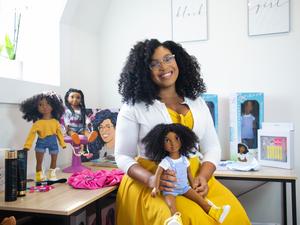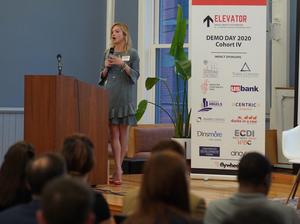
Chelsea Clark has some tips for companies looking to boost minority entrepreneurs: provide tangible tools and capital.
Clark, founder and CEO of Cincy STEM Lab, spent the past year retooling her business after the coronavirus pandemic made her question whether it was even salvageable.
"Thank God I was so frugal because I would have lost my business," Clark said. "I still don’t even have a business credit card. I have had to manage every single dollar of this business."
Cincy STEM Lab, which recently moved to a new 6,700-square-foot facility in Blue Ash, offers science, technology and math opportunities through summer camps, birthday parties and school enrichment programs in Greater Cincinnati. This summer, more than 400 children are enrolled in its summer programming. The company also produces STEM kits for children to do experiments and engineering activities at their homes, an idea Clark came up to help keep the business financially afloat during the pandemic.
Clark's goal is breakdown the barriers students face when entering the STEM field, whether they're racial, economic or related to learning disabilities.
"We’ve been able to grow because we really love and (believe) every single kid, especially kids like this that are a little nerdy, needs a place where they can be a superstar," she said.
And while her business helps break down barriers for students, Clark still faces her own barriers as a minority entrepreneur. In an interview with Cincy Inno, she laid out ways businesses can help startups led by minority founders grow, including:
- One challenge Clark faces is that it's just her running the operations of Cincy STEM Lab. That means any time she spends applying for contracts or participating in accelerators is time she isn't spending on growing the business. Her suggestion is for organizations to offer back-office support using their resources, rather than hosting a seminar on how to do it. For instance, Clark said having access to a grant writer who understands the nuances involved would be extremely beneficial.
- Another issue Clark faces is access to capital. Since 2015, just 2.4% of venture capital dollars have been raised by Black and Latino founders, according to Crunchbase. Clark said small-dollar grants are good but don't provide the full financial support needed to truly grow her business. "You really want to help me out, then let’s start at $20,000. If I can’t turn $20,000 to $200,000 in 36 months, then we can talk," she said.
"We’re getting drunk off equity, but how are you doing it?" Clark said. "Because there have been these barriers generationally… now everybody can see what the result of that is."







